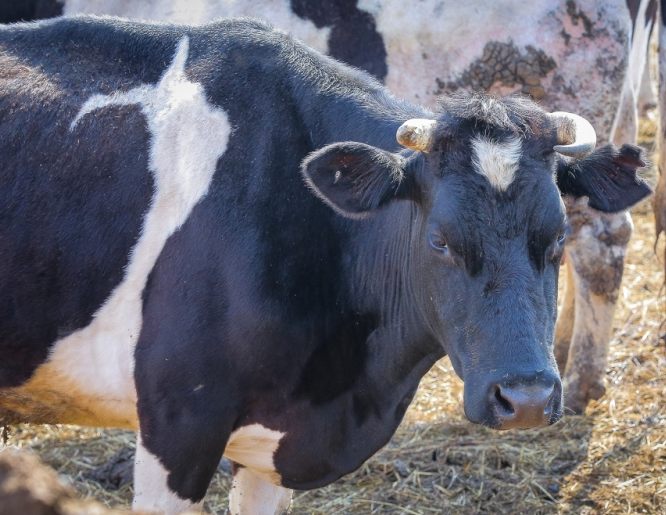 Azamat Saginbaev, director of the Department of Animal Husbandry of the Ministry of Agriculture of the Republic of Kazakhstan, said that by now the fact of the volume of beef exports is only 3,4 thousand tons with the planned indicator of 10 thousand tons (34% of the plan) for 2017.
Azamat Saginbaev, director of the Department of Animal Husbandry of the Ministry of Agriculture of the Republic of Kazakhstan, said that by now the fact of the volume of beef exports is only 3,4 thousand tons with the planned indicator of 10 thousand tons (34% of the plan) for 2017.
The Ministry of Agriculture understands the causes of the crisis in livestock production. Having counted how many feed units are accounted for by each head of farm animals in Kazakhstan, agrarian officials made an obvious conclusion - the cattle in the country are hungry. The average food deficit in the country is 42%, and in some regions even more.
The situation in Mangistau region is the worst, where the deficit is estimated at 87%. "And at the same time, we want him and meat to give, and milk, and the animal's offspring," said Kayrat Aytuganov, presenting the Agroindustrial Development Card in Karaganda. "Unfortunately, there is no fodder base in the country, we need to create it, we will get an increase in milk and meat production of 20-25 percent without breeding, if we fully feed the existing cattle. Without feeds, nothing will happen."
Only one region of the country provides itself with fodder - Kostanay region, where the deficit is only 1%. On the average, the cattle receive only half of the necessary food. The need for feed in the Karaganda region is closed by 55%. Every year the region receives less than 20% of livestock production due to underfeeding of animals.
According to the "Feed Balance Chart" prepared by the Ministry of Agriculture, today the country produces only a small part of the required volume of feed: the demand for silage is only closed by 25%, for mixed fodder by 36%, for hay by 59%, forage by 72%. Accordingly, the annual production deficit is estimated at 11 million tons of hay, 3.9 million tons of silage, 2.2 million tons of mixed feed, 1.3 million tons forage. Inadequate feeding causes a shortage of 14% of the gross output of livestock products by 210 billion tenge ($ 628.14 million) per year. "We need to explain to farmers the need to feed livestock with mixed fodders," Kayrat Aytuganov said. "The consequence will be an increase in the weight gain and milking. If we show them the result - they will no doubt take mixed fodder."
Source: kazakh-zerno.kz.

